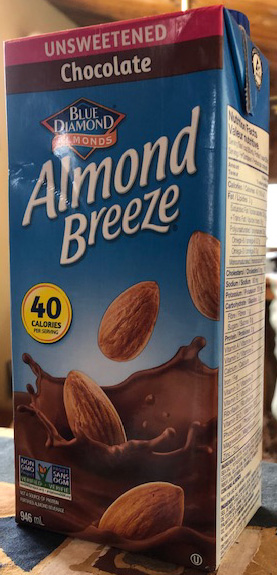| |||
| Math Central | Quandaries & Queries |
|
Question from Anjhelic: Karen is sipping juice from a 1 in. by 3 in. by 6 in tetra pack at the rate of 0.5in³/sec. How fast is the height of juice in the pack decreasing? |
Hi Anjhelic,
Here is an image of a Tetra Pak which has approximately the same dimensions as Karen's, a base of 1 in. by 3 in. and a height of 6in.

The subject line of your email was Calculus but, because of the shape of the Tetra Pack, calculus is not needed. The cross section of the box is a 1 inch by 3 in rectangle. Every second the volume of juice removed is a rectangular slice of volume 0.5 cubic inches. The slice removed is 1 in. by 3 in. by its thickness. Thus
\[1 \times 3 \times \mbox{ thickness } = \frac{1}{2} \mbox{ cubic inches.}\]
Thus the slice removes every second is $\large \frac{1}{6}$ inches thick. Thus the height of the liquid in the box is decreasing at the rate of $\large \frac{1}{6}$ inches per second.
What about a calculus solution? Suppose that at tim $t$ seconds after Karen starts to drink and before the container is empty the volume of liquid in the box is $V(t)$ cubic inches and the height of the liquid in the box is $h(t)$ inches. Then we know that
\[V(t) = 1 \times 3 \times h(t) = 3 h(t) \mbox{ cubic inches.}\]
Differentiate each side by $t.$ You know that
\[V^{\prime}(t) = \frac{1}{2} \mbox{ cubic inches per second.}\]
Solve for $h^{\prime}(t).$
Harley
 |
||
Math Central is supported by the University of Regina and The Pacific Institute for the Mathematical Sciences.